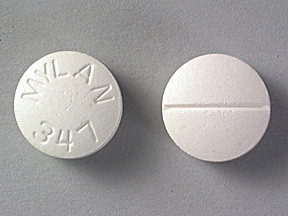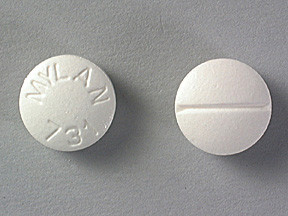PROPRANOLOL/HYDROCHLOROTHIAZIDE - ORAL
PHONETIC PRONUNCIATION: (pro-PRAN-oh-lol/HYE-droe-KLOR-oh-THYE-a-zide)
COMMON BRAND NAME(S): Inderide
GENERIC NAME(S): propranolol HCl/hydrochlorothiazide
Uses
USES: This product is used to treat high blood pressure (hypertension). Lowering high blood pressure helps prevent strokes, heart attacks, and kidney problems. This product contains 2 medications. Propranolol is a beta blocker that works by blocking certain natural chemicals in your body (such as epinephrine) that affect the heart and blood vessels. This effect reduces heart rate, blood pressure, and strain on the heart. Hydrochlorothiazide is called a "water pill" (diuretic) and causes your body to get rid of extra salt and water. This effect may increase the amount of urine you make when you first start the medication. It also helps to relax the blood vessels so that blood can flow through the body more easily. These medications are used together when 1 drug is not controlling your blood pressure. Your doctor should direct you to start taking the individual medications first, and then switch you over to this combination product if this is the best dose combination for you.
How to use PROPRANOLOL/HYDROCHLOROTHIAZIDE - ORAL
HOW TO USE: See also Warning section. Take this medication by mouth, usually twice daily or as directed by your doctor. You may take this medication with or without food, but it is important to choose one way and take this medication the same way with every dose. The dosage is based on your medical condition and response to treatment. If you take this drug too close to bedtime, you may need to wake up to urinate. Therefore, it is best to take this medication at least 4 hours before your bedtime. Consult your doctor or pharmacist if you have questions about your dosing schedule. If you also take certain drugs to lower your cholesterol (bile acid-binding resins such as cholestyramine or colestipol), take this product at least 4 hours before or at least 4 to 6 hours after these medications. Use this medication regularly to get the most benefit from it. To help you remember, take it at the same times each day. It is important to continue taking this medication even if you feel well. Most people with high blood pressure do not feel sick. It may take up to several weeks before you get the full benefit of this drug. Tell your doctor if your condition worsens (e.g., your routine blood pressure readings increase).
Side Effects
Precautions
Interactions
Overdose
Images

- color
- white
- shape
- round
- imprint
- MYLAN 347

- color
- white
- shape
- round
- imprint
- MYLAN 731
Reviews
Faq for PROPRANOLOL/HYDROCHLOROTHIAZIDE - ORAL
Propranolol/Hydrochlorothiazide is a combination medication used to treat hypertension (high blood pressure).
Propranolol is a beta-blocker that works by slowing down the heart rate and reducing the force of the heartbeat, which helps to lower blood pressure. Hydrochlorothiazide is a diuretic that helps the body get rid of excess salt and water, thus reducing blood volume and lowering blood pressure.
The common side effects of Propranolol/Hydrochlorothiazide include dizziness, lightheadedness, fatigue, nausea, diarrhea, and decreased sexual ability.
Propranolol/Hydrochlorothiazide should be used during pregnancy only if clearly needed and under the guidance of a healthcare professional. It may cause harm to the fetus, especially during the second and third trimesters.
Propranolol/Hydrochlorothiazide may pass into breast milk and may have unwanted effects on a nursing infant. It is recommended to consult a healthcare professional before using this medication while breastfeeding.
Propranolol/Hydrochlorothiazide can interact with other medications, such as certain antidepressants, antidiabetic drugs, and other blood pressure medications. It is important to inform your healthcare provider about all the medications you are currently taking to avoid any potential interactions.
The effects of Propranolol/Hydrochlorothiazide may be noticed within hours to days, but it may take several weeks for the full benefits of the medication to be experienced. It is important to continue taking the medication as prescribed, even if you feel well.
Hydrochlorothiazide, one of the components of Propranolol/Hydrochlorothiazide, is a diuretic that increases urination. This can lead to dehydration if adequate fluid intake is not maintained. It is recommended to drink plenty of fluids while taking this medication.
Propranolol/Hydrochlorothiazide should not be stopped suddenly without consulting your healthcare provider. Suddenly stopping this medication can cause a rebound increase in blood pressure and other adverse effects. It is important to gradually reduce the dosage under medical supervision.
Warning
WARNING: Do not stop using this drug without first consulting your doctor. Your condition may become worse when the drug is suddenly stopped, especially if you have chest pain (angina) or heart disease (e.g., coronary artery disease, ischemic heart disease, high blood pressure). If your doctor decides you should no longer use this drug, you must gradually decrease your dose according to your doctor's instructions. When gradually stopping this medication, it is recommended that you temporarily limit physical activity to decrease strain on the heart. Seek immediate medical attention if you develop: worsening chest pain, tightness/pressure in the chest, chest pain spreading to the jaw/neck/arm, unusual sweating, trouble breathing, or fast/irregular heartbeat.
Disclaimer
IMPORTANT: HOW TO USE THIS INFORMATION: This is a summary and does NOT have all possible information about this product. This information does not assure that this product is safe, effective, or appropriate for you. This information is not individual medical advice and does not substitute for the advice of your health care professional. Always ask your health care professional for complete information about this product and your specific health needs.
No Reviews Yet